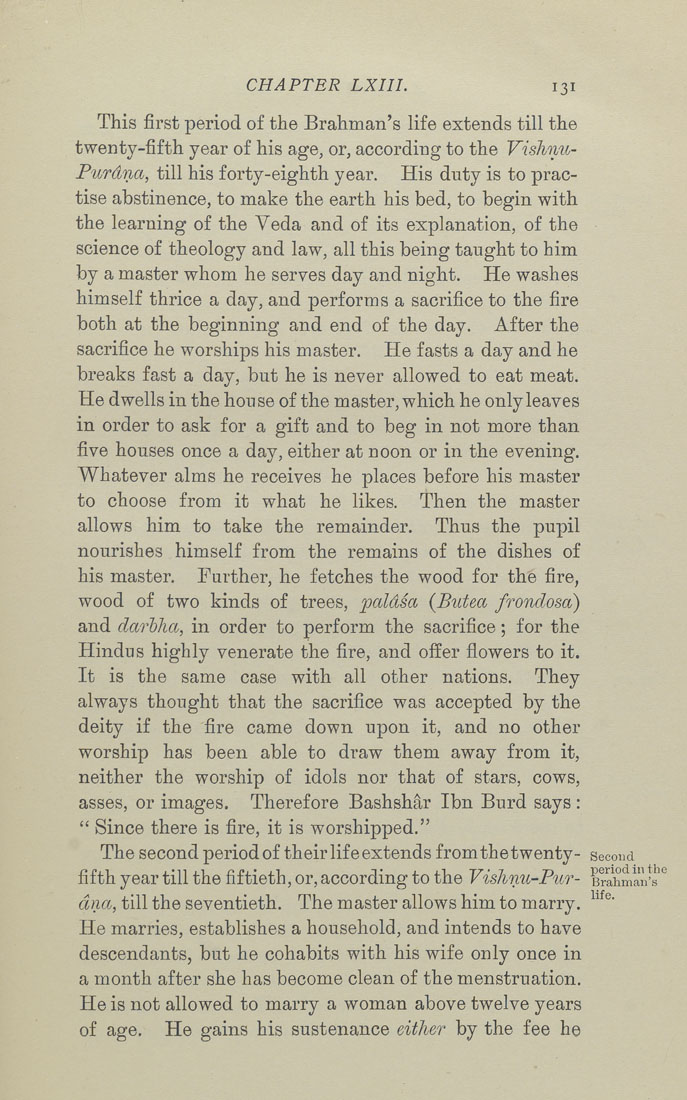CHAPTER LXIII. 131
This first period of the Brahman's life extends till the
twenty-fifth year of his age, or, according to the Vishnu-
Purdna, till his forty-eighth year. His duty is to prac¬
tise abstinence, to make the earth his bed, to begin with
the learning of the Veda and of its explanation, of the
science of theology and law, all this being taught to him
by a master whom he serves day and night. He washes
himself thrice a day, and performs a sacrifice to the fire
both at the beginning and end of the day. After the
sacrifice he worships his master. He fasts a day and he
breaks fast a day, but he is never allowed to eat meat.
He dwells in the house of the master, which he only leaves
in order to ask for a gift and to beg in not more than
five houses once a day, either at noon or in the evening.
Whatever alms he receives he places before his master
to choose from it what he likes. Then the master
allows him to take the remainder. Thus the pupil
nourishes himself from the remains of the dishes of
his master. Further, he fetches the wood for the fire,
wood of two kinds of trees, paldsa (Butea fronclosct)
and dctrbhct, in order to perform the sacrifice; for the
Hindus highly venerate the fire, and offer flowers to it.
It is the same case with all other nations. They
always thought that the sacrifice was accepted by the
deity if the fire came down upon it, and no other
worship has been able to draw them away from it,
neither the worship of idols nor that of stars, cows,
asses, or images. Therefore Bashshar Ibn Burd says:
" Since there is fire, it is worshipped."
The second period of their life extends fromthetwenty- second
fifth year till the fiftieth, or, according to the Vishnu-Pur- Brahman's'"
ana, till the seventieth. The master allows him to marry. ^^'
He marries, establishes a household, and intends to have
descendants, but he cohabits with his wife only once in
a month after she has become clean of the menstruation.
He is not allowed to marry a woman above twelve years
of age. He gains his sustenance either by the fee he
|








